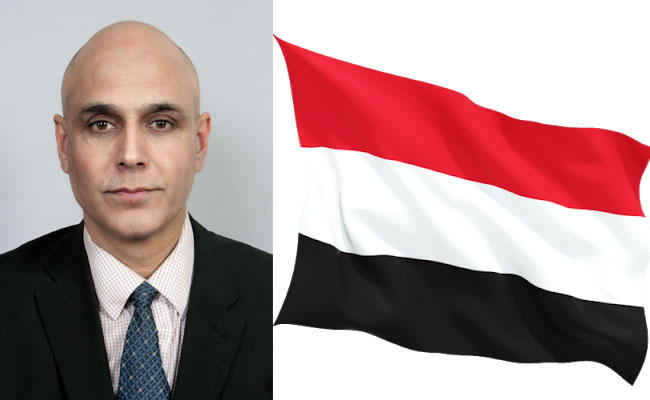Written By Qasim Swati (United Kingdom)
The low fuel stocks, lack of fresh water, food shortages, paucity of medicines and other medical facilities, the loss of jobs and businesses, the closures of many educational institutions, both the deliberate and mistaken killings of civilians, the destruction of the country’s infrastructure and the violations of various human rights have turned the whole of Yemen into ‘Hell on Earth’.
The innocent people of the country suffer a lot at the hands of both warring and rival sides and their allies and supporters. Yemenis are forced to bear the brunt of and pay the price for the ongoing multi-sided conflict (the Yemeni Civil War) that started in late 2014 between two belligerent groups, one led by the Houthi armed movement, while the other being under the control of the Yemeni government led by Abdrabbuh Mansur Hadi, both supported by their respective supporters and allies.
Besides taking the lives of thousands of people, wounding and displacing a large number of more (many of them being civilians, including women, children, the elderly, the disabled, etc.), the current Civil War in Yemen has brought the country to the edge of collapse.
Apart from an outbreak of cholera, which has killed, at least, 2,500 people (58% being children), just as of October, 2018, while over 85,000 children alone lost their lives as a result of a catastrophic famine since 2016, as estimated in 2018, the country is now on the brink of another widespread famine, which can lead to the deaths of so many more people.
Another report, published in November, 2019, by the World Health Organisation’s Regional Office for the Eastern Mediterranean, says that around 3,886 people have died as a result of cholera in Yemen which is one of the worst humanitarian crises in the history of the world.
The World Food Programme announced on 20 October, 2020, as “Over 20 million Yemenis are food insecure, of which nearly 10 million are acutely food insecure, despite ongoing humanitarian assistance. The rate of child malnutrition is one of the highest in the world and the nutrition situation continues to deteriorate.
“Malnutrition rates among women and children in Yemen remain among the highest in the world, with more than a million women and 2 million children requiring treatment for acute malnutrition,” stated in the same report, while unveiling the dreadful famine situation in Yemen.
The ongoing Yemeni Civil War has made the situation worse by shelling and bombing the sources or supplies of water, farms, markets and storages of fruits, vegetables and other food and agricultural commodities and destroying the railways, electrical grids, roads, bridges, telecommunication system and such other components of the country’s infrastructure. As a result, the prices of the food have doubled or even skyrocketed more in some cases and some parts of the country, which has led to the nationwide poverty and brought the country to the edge of starvation.
Qasim Swati is a freelance journalist, writer and human rights activist, based in the UK, and can be reached at https://qasimswati.com or mailto: info@qasimswati.com.
